Turning points: Syria and the Russian diplomacy. Stalingrad syndrome.
“Damascus is the “Stalingrad” of Russian diplomacy. After years of geopolitical withdrawal, Moscow has chosen Syria as a way to revive its image of power in the world. “Not one step back” is the Kremlin’s new strategy, as it was for the Red Army along the banks of the Volga river during World War II. To be more convincing, the Kremlin has simultaneously flexed its muscles by supplying sophisticated […]
«Коста Конкордия», год cпустя после гибели.
12 Jan 2013 «Эта колонка не место для общественного процесса против капитана лайнера, главного подозреваемого в аварии, произошедшей в ночь с 13 на 14 января 2012 года недалеко от острова Джильо. Но все-таки у нас есть возможность уточнить здесь некоторые моменты…
Круизы в Европе пользуются заслуженной популярностью, они безопасны, удобны и по большому счету недороги. Наши круизные лайнеры на самом деле высшего качества — их, конечно, нельзя сравнивать с российской «Булгарией», как, помню, кто-то у вас написал… »
Статья – Джузеппе Д’Амато Московский Комсомолец № 26135 от 12 января 2013 г. Giuseppe D’Amato Moskovskij Komsomolets.
Due sono i favoriti della prima tornata elettorale: l’economista 68enne Milos Zeman ed il 62enne esperto in statistica Jan Fischer.
Con loro altri sette sono i candidati in lizza. Le previsioni della vigilia danno per scontato che nessuno riuscirà ad ottenere più del 50% dei voti per essere eletto già ora presidente. Si tornerà così alle urne il 25-26 gennaio prossimo per il ballottaggio. 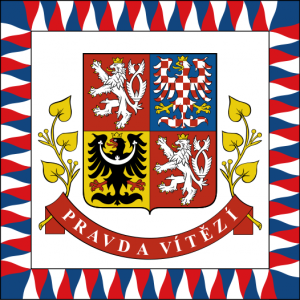
Dopo due capi dello Stato eletti dal Parlamento, Vaclav Havel e Vaclav Klaus, la Repubblica ceca ha deciso ora di cambiare sistema elettorale per evitare le passate contrapposizioni.
Sia Zeman che Fischer, ambedue ex premier, hanno posizioni più morbide con Bruxelles a differenza dell’euroscettico conservatore presidente uscente Klaus, il cui mandato scade il prossimo 7 marzo.
Il primo è tornato alla politica dopo anni di assenza, mentre il secondo si è segnalato per la buona conduzione del semestre di presidenza ceca dell’Unione europea.
Secondo la Costituzione in vigore il capo dello Stato ha il potere di scegliere il primo ministro sulla base delle elezioni legislative e di selezionare i membri della direzione della Banca centrale. Con l’approvazione della Camera alta del Parlamento il presidente nomina i giudici della Corte Costituzionale.
Ukraine has said it wants to strengthen human rights during its term – while facing criticism for its own democratic credentials.
Opposition leader Tymoshenko was sentenced to seven years imprisonment in a trial that drew wide international criticism. As a result, she was unable to take part in parliamentary elections in late October, which the OSCE observer mission declared to be unfair and a “step backwards.” 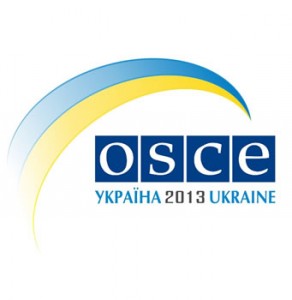
Susan Stewart at the Berlin-based German Institute for International and Security Affairs (SWP) also believes that Ukraine’s reputation has suffered in recent years because of human rights violations and backpedalling on democracy. “That’s why I think it will be difficult for Ukraine to exercise strong leadership,” Stewart said.
Ukraine is the second former Soviet republic to assume the OSCE presidency after Kazakhstan in 2010, which paved the way. But Kazakhstan was also criticized for human rights violations.
The OSCE was created during the Cold War to serve as a forum for dialogue between the warring blocs in the East and West. Today, the Vienna-based organization unites 57 nations from Europe, Central Asia and North America. It fights terrorism, seeks to resolve conflicts and helps protect the environment. Observing human rights and fundamental freedoms is a key part of OSCE’s security concept.
Old divisions threaten to paralyze its work.
Complete Article – Roman Goncharenko – Deutsche Welle
OSCE-Ukraine
Ukraine’s representative at the negotiations on the Transdniestrian conflict settlement, Ihor Kharchenko has said that the Transdniestrian conflict settlement will be the No. 1 priority during Ukraine’s presidency of the OSCE in 2013.
«Евгений Ройзман, глава екатеринбургского фонда «Город без наркотиков» — антигерой западных журналистов…
Либералы среди моих московских друзей от «списка Магнитского» в восторге. Это понятно: дело Магнитского — действительно жуть. Налоговый советник британского Hermitage Capital пытался разобраться с рейдерами, отчасти сотрудниками силовых структур, которые отняли у Hermitage Capital несколько дочерних компаний. В ответ самого Магнитского арестовали, обвинив в том, что он помог британцам уклониться от уплаты налогов. В СИЗО он заболел, его так «лечили», что «залечили», он умер… 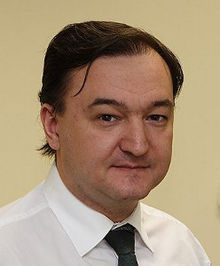
Ответ Москвы свидетельствует об истинном состоянии Великой России… Похоже, самому Путину стало стыдно, раз он убеждал журналистов, что запрет усыновления русских детей американцами — это ответ не на «закон Магнитского», а на то, что американские власти не пускают российских представителей следить, как в США относятся к усыновленным детям. Другими словами, у России нет ответа на американский закон…
…российская оппозиция с энтузиазмом взялась за дело, учредила Независимый совет по правам человека. Его главная задача — как раз составлять новые списки, в качестве возможных фигурантов которых совет уже назвал судей по делам Ходорковского и Pussy riot. И это только начало…
А что выиграют оппозиционеры-правозащитники от своей новой функции внесудебного трибунала для выявления негодяев в госструктурах? … Такая оппозиция напоминает деревенскую бабу, которую постоянно мутузит муж-алкаш. Она зовет соседа, чтобы тот урезонил мужа. Сосед здоровый, мужа пугает, но как только уходит — муж снова мутузит бабу.
Может быть, пора развестись?… Мне кажется, России не нужны американские или европейские списки возмездия. России нужны люди типа Ройзмана, для которых свои наркоманы дороже иностранных корреспондентов».
Статья – Штефан Шолль – Московский Комсомолец № 26126 от 24 декабря 2012 г. Stefan Scholl Moskovskij Komsomolets
Ukraine, The Second Azarov’s Cabinet.
29 Dec 2012Serhiy Arbuzov, former head of the National Bank, was appointed First Vice Prime Minister.
Yuriy Boyko and Oleksander Vilkul were appointed Vice Prime Ministers.
Former foreign minister Kostiantyn Hryschenko appointed another Ukraine’s Vice Premier.
Olena Lukash became a Minister of Cabinet of Ministers. 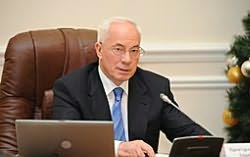
Yuri Kolobov remained at the position of Finance Minister.
Ihor Prasolov took a seat of Minister of Economic Development and Trade, which was previously occupied by Petro Poroshenko.
Eduard Stavytsky became Energy and Coal Industry Minister.
Instead of Borys Kolesnikov, the seat of Infrastructure Minister was occupied by Volodymyr Kozak, former Head of the State Railway Administration of Ukraine. While Kolesnikov became a governor of Dnipropetrovsk Oblast.
Hennady Temnyk was appointed Minister of Regional Development, Construction and Utilities.
Oleh Proskuriakov became Minister of Ecology and Natural Resources.
Natalia Korolevska was appointed Minister of Social Policy.
Oleksander Klymenko, former head of the State Tax Administration, was appointed Minister of Revenues and Duties. Yanukovych has reorganized the State Tax Service and the State Customs Service into the Ministry of Revenues and Duties of Ukraine.
Pavlo Lebedev became Defense Minister.
Vitaly Zakharchenko remained Interior Minister.
Leonid Kozhara was appointed a new Minister of Foreign Affairs.
Mykhaylo Bolotsky became Head of the reorganized State Emergency Service.
Oleksander Lavrynovych was again appointed Minister of Justice.
Dmytro Tabachnyk remained at the position of the Education Minister.
Raisa Bohatyriova was reappointed Health Minister.
Yanukovych has reappointed Mykola Prysiazhniuk as the agrarian policy and food minister.
This cabinet was appointed by President Viktor Yanukovych on 24 December 2012.
Source: Kyiv Post, Interfax Ukraine
РГГУ признан востребованным вузом.
27 Dec 2012Результаты рейтинга российских вузов, оглашенного в канун нового года Российским союзов ректоров (РСР), не подтверждают итогов мониторинга Минобрнауки. Так, признанный малоэффективным РГГУ вошел в топ-десятку, а бывший Ленпед — в топ-двадцатку самых востребованных университетов. 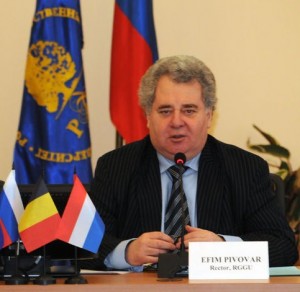
И еще об РГГУ. По словам ректорa НИУ ВШЭ Ярославa Кузьминова, «это — сильный вуз со своей школой. Наука там, может, и не очень сильна, но ее финансирование — задача государства. А она до сих пор не решена. Основная проблема РГГУ — 5,5 метров на одного студента. Но это — признак востребованности вуза, а также — сигнал учредителю (т.е. государству), что вузу нужно новое, дополнительное здание. Сам вуз сегодня себе его купить не может. Это — задача государства. А вуз лишь должен пересмотреть свою деятельность и перенацелить ее на традиционно сильные направления». Ректор НИУ ВШЭ также подчеркнул, что у его вуза «нет и не было намерения присоединять к себе РГГУ. И Минобрнауки об этом знает».
Статья – Марина Лемуткина – Московский Комсомолец № 26128 от 26 декабря 2012 г.
Today we held our 30th EU-Russia Summit. This is a real tribute to the important nature of our partnership. It demonstrates the priority which we attach to this strategic relationship. Russia and the EU have a lot to gain from cooperating.
Our economies are strongly linked:
45 % of Russia’s exports go to the EU, while 35 % of Russia’s imports come from the EU.
We are neighbours on our continent. More than 5 million Schengen visas were issued in 2011 in Russia. We may have different positions in some areas but we have more common interests. We must work together to guarantee security and stability on the European continent, to tackle global challenges and governance issues, and to promote economic growth. 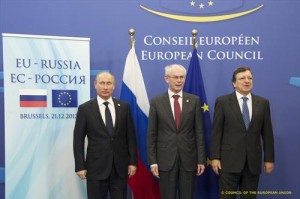
We have had a positive and constructive working summit. It provided us with an important occasion to take stock of main developments and to review progress and challenges across the wide range of EU-Russia relations. We also discussed how we can deepen our cooperation and implement already agreed commitments.
Our Partnership for Modernisation works. We have taken note of the latest Progress Report, and welcome the good results achieved in many areas. Further progress has to be made in the negotiations towards a New Agreement, which can put our future relations on a solid legal basis. The EU is very eager to progress faster in these negotiations.
We have discussed domestic economic developments in Russia and the EU. I explained the decisions of last week’s European Council regarding the strengthening of the EMU and the huge progress we made in stabilising the euro zone.
The EU is deeply convinced that we need to create space for civil society activities in order to achieve an effective modernisation of the economy and of the society.
We have noted the outcome of our latest Human Rights Consultations on 7 December which provided a useful occasion to discuss our concerns on the freedom for civil society activities and the exercise of fundamental rights in Russia. I mentioned also other concerns, including the case of Sergey Magnitsky.
As regards foreign policy, we have discussed ways to deepen our political cooperation at global level. We already work well together on issues like the Middle East Peace Process, Afghanistan or Iran. We have to continue our efforts to find a peaceful political solution on Syria in full support of Mr Brahimi’s efforts.
Russia and the EU work closely together in the Quartet, and we remain committed to a two-state solution to the Israeli-Palestinian conflict. In this respect I would like to highlight the joint statement by Foreign Minister Lavrov and High Representative Ashton today on the Middle East Peace Process.
As regards our Common Neighbourhood, I highlighted the need to achieve stability and security as well as democracy and a market-oriented economy. This is the aim of EU’s support within the Eastern Partnership Programme, especially as regards to Ukraine, Moldova and Georgia.
We welcome that the elections in Georgia open up new opportunities to improve bilateral relations and work towards stability in the Southern Caucasus, on the basis of the respect for territorial integrity.
It is particularly important to address the protracted conflicts. I also raised the importance of moving forward in the ‘5+2’ talks on the conflict in Transnistria and expressed concerns regarding developments in Nagorno-Karabakh.
By working together, the EU and Russia can make a decisive contribution to global governance and regional conflict resolution, to global economic governance in the G 8 and G 20, and to a broad range of international and regional issues. I would like to congratulate President Putin for taking over the presidency of G 20.
I am pleased that President Putin and the EU have discussed all these issues openly in a very constructive atmosphere. I want to thank the President of the Russian Federation for the constructive and productive exchange.
Press statement
by the President of the European Council
Herman Van Rompuy
following the 30th EU-Russia Summit.
Brussels, 21 December 2012
EUCO 243/12
PRESSE 557
PR PCE 206
«Первый. «Российские сироты, усыновлённые в Америку, лишаются Родины». Это лицемерие. У маленьких детей нет политического мышления. Они даже папа-мама ещё не говорят (а некоторые вообще не заговорят). У них нет абстрактного мышления. Нет понимания философских категорий (Родина, Добро, Зло)…
Второй аргумент. «Надо, чтобы нашим сиротам здесь было хорошо». Этот довод вы повторили на пресс-конференции и даже сослались на премьер-министра Медведева: мол, вы с ним это обсуждали. 
Спасибо большое. Мы полностью согласны: надо, чтобы здесь было хорошо. Ещё надо, чтобы здесь делали хорошие машины…
В Америке пытают — это третий расхожий аргумент.
Да, там пытают террористов, пойманных живьём, и тех, кого подозревают в терроризме. Что поделаешь, это война. Когда наши ловят террориста (или подозреваемого), то из него любым способом достают всю информацию. Это, увы, необходимость. Надо, чтобы пойманный как можно скорее сообщил пароли, явки, адреса — это поможет предотвратить теракт, спасти людей. И в Москве любым способом достают из пленника информацию, и в Чечне, и в Америке. Недавно показали человека, который, как утверждалось, планировал ваше убийство. Рожа этого парня была распухшая и вся вымазана зелёнкой — думаете, это ему прыщики прижигали? …
Каждый младенец, как только вылез на свет божий, — уже гражданин РФ. Ему повезло — его интересы защищает Конституция РФ. Там есть статья 27: «Каждый может свободно выезжать за пределы Российской Федерации».
Ну, и с какой стати эти депутаны, нарушая Конституцию, препятствуют гражданам РФ свободно выезжать отсюда куда угодно? …
Ещё один постоянный аргумент против усыновления в Америку: там погибло 19 детей из России. Да, из десятков тысяч усыновлённых там погибло 19. За эти же годы здесь, в России, погибли тысячи. На днях опубликован список — бесконечный мартиролог! — детей, которых родные матери, отцы, отчимы убили всего лишь за то, что они плакали, мешали. Детей выбрасывают из окна, душат, морят голодом до смерти, разбивают голову об угол; откройте в интернете — почитайте сами. »
Статья – Александр Минкин – Московский Комсомолец № 26124 от 21 декабря 2012 г. – Aleksandr Minkin.
Rapporti con gli Stati Uniti, crisi siriana, questioni interne. Vladimir Putin è stato incalzato da circa mille duecento giornalisti per quattro ore e mezza, molto più a lungo di quanto preventivato. Ad un certo punto è quasi sembrato che il capo del Cremlino non volesse più chiudere la mega-intervista per mostrare ai presenti di essere tornato in forma come ai bei tempi. I problemi di salute alla schiena di quest’autunno sono apparsi quindi superati. 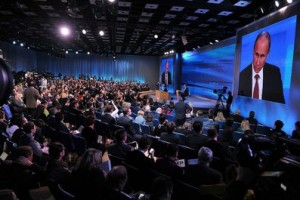
Il piglio del presidente russo nel rispondere alle domande, anche a quelle più scomode, è stato quello solito. Dopo aver sciorinato le cifre più che buone sullo stato dell’economia federale – Pil +3,7%, inflazione al 6,3%, tasso di disoccupazione al 5,4%, riserve valutarie pari a 527 miliardi di dollari – è iniziata l’interminabile maratona mediatica.
Vladimir Putin è d’accordo con l’iniziativa della Duma di bloccare le adozioni di bambini russi da parte di cittadini statunitensi. “Hanno cambiato – ha rimarcato il capo del Cremlino, andando all’attacco contro il Congresso Usa, – una legge anti-sovietica (ndr. la Jackson-Vinik del 1974) con una anti-russa”. Washington intende in quel modo colpire i corrotti e chi calpesta la democrazia in Russia. Una simile legge è già approdata anche all’Ue, a Strasburgo. Mosca ha subito reagito con una contro iniziativa legislativa anti-Usa. Non si è capito, però, perché siano state scelte le adozioni internazionali. Conclusione: a rimetterci saranno le migliaia di bambini abbandonati negli orfanatrofi russi.
I giornalisti presenti hanno fatto notare che le adozioni nazionali sono ben poca cosa rispetto all’enorme necessità di dare una casa alle centinaia di migliaia di sfortunati. Ma non c’è stato nulla da fare.
Parlando delle questioni aperte con la Casa bianca e sottolineando che i problemi sono sorti con la guerra in Iraq, Putin ha ricordato la spinosa questione dello Scudo anti-missilistico, che gli occidentali sono intenzionati a dislocare nel Vecchio Continente. “Che gli interessi russi vengano rispettati”, è stato il suo appello.
Mosca non è preoccupata per la sorte di Bashar al-Assad e capisce che “certamente servono cambiamenti in Siria. Quello che a noi interessa è cosa succederà dopo”. La vicenda libica ha insegnato che le soluzioni politiche vanno preferite a quelle militari, quando ci si trova di fronte al rischio della dissoluzione di uno Stato.
Putin ha negato che lo Stato da lui creato sia “autoritario”. Se fosse così l’attuale leader russo avrebbe fatto emandare nel 2008 la Costituzione, che vieta più di due mandati presidenziali. Così non è stato. “Abbiamo garantito la stabilità”, ha contro ribattuto Putin, secondo il quale “la democrazia non significa anarchia”. Per quanto riguarda l’ex oligarca Michail Khodorkovskij, ora in carcere, il capo del Cremlino ha messo in evidenza che il sistema giudiziario in Russia è indipendente da quello politico e lui non ha nulla a che vedere con quel caso. Anzi Putin si è augurato che una volta libero nel 2014 l’ex uomo più ricco del Paese goda di buona salute.
“Se Gerard ha bisogno di un permesso di soggiorno o di un passaporto russo – ha detto sorridendo Putin riferendosi all’attore francese Depardieu, che sta emigrando per evitare l’elevata imposta appena decisa da Parigi – il problema è risolto”.
Un primo colpevole siede in prigione da venerdì scorso. Dmitrij Pavljuchenkov è stato condannato ad 11 anni di colonia penale a regime duro. E’ stato provato che l’ex ufficiale di polizia ha pedinato per giorni la giornalista ed ha fornito al killer l’arma del delitto.
Pavljuchenkov non ha, però, fatto il nome dell’assassino né tanto meno quello dei mandanti. Ha raggiunto un accordo preventivo secondo il quale lui ammetteva quanto attribuitogli, evitando di testimoniare pubblicamente in aula. 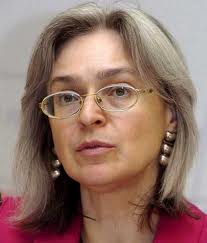
Questa scelta della Procura ha provocato polemiche a non finire, ma l’obiettivo di tale decisione è stato quello di arrivare ad una svolta per stabilire un primo punto fermo, dopo anni in cui gli inquirenti hanno letteralmente brancolato nel buio.
Pavljuchenkov si è fatto soltanto scappare di bocca che prima dell’omicidio non erano solo i “criminali” a seguire la scomoda giornalista, famosa per le sue inchieste sul malaffare e per le sue posizioni anti-Cremlino, ma anche vari “servizi”.
Da qui la conferma di quanto da sempre affermato dalla famiglia Politkovskaja, ossia che dietro all’uccisione della congiunta si celi un vero complotto. Come si ricorderà la reporter venne uccisa sul pianerotto dello stabile in cui aveva affittato nel centro di Mosca un appartamento il 7 ottobre 2006.
Nel 2009 sono stati processati tre fratelli ceceni, poi assolti per mancanza di prove. Secondo gli investigatori Rustam Makhmudov sarebbe stato il killer della giornalista, mentre gli altri due avrebbero avuto il compito di palo ed autista del commando.
Il terzetto, insieme al condannato Pavljuchenkov, sarebbe stato al soldo di un boss loro connazionale, tale Lomali Gaitukaiev, adesso in galera per altri reati. Un altro figurante in questa vicenda è un secondo poliziotto, che avrebbe fornito al gruppo di fuoco aiuto logistico.
In sintesi, se più o meno gli inquirenti sono riusciti a ricostruire la scena del delitto è invece buio fitto sui mandanti. In passato Dmitrij Muratov, il direttore della Novaja Gazeta, la testata per la quale lavorava la reporter uccisa, ha puntato il dito contro le autorità, sostenendo che esiste “un tabù politico” che blocca l’identificazione di chi ha materialmente pagato il commando.
Impossibile capire anche il movente dell’omicidio. La Politkovskaja aveva nemici ovunque, nella galassia della criminalità organizzata ed in quella dei servizi deviati, in Russia come in Cecenia.
Welcome
We are a group of long experienced European journalists and intellectuals interested in international politics and culture. We would like to exchange our opinion on new Europe and Russia.
Categories
- Breaking News (11)
- CIS (129)
- Climate (2)
- Energy&Economy (115)
- EU Eastern Dimension (85)
- Euro 2012 – Sochi 2014 – World Cup 2018, Sport (43)
- Euro-Integration (135)
- History Culture (198)
- International Policy (261)
- Military (74)
- Interviews (18)
- Italy – Italia – Suisse (47)
- Odd Enough (10)
- Poland and Baltic States (126)
- Religion (31)
- Russia (421)
- Survey (4)
- Turning points (4)
- Ukraine (176)
- Российские страницы (113)
Archives
- November 2020
- October 2020
- September 2020
- August 2020
- July 2020
- May 2020
- April 2020
- March 2020
- January 2020
- December 2019
- November 2019
- October 2019
- September 2019
- August 2019
- July 2019
- June 2019
- May 2019
- April 2019
- March 2019
- February 2019
- December 2018
- November 2018
- October 2018
- September 2018
- August 2018
- July 2018
- June 2018
- May 2018
- April 2018
- March 2018
- February 2018
- January 2018
- December 2017
- November 2017
- October 2017
- September 2017
- August 2017
- July 2017
- May 2017
- March 2017
- January 2017
- December 2016
- November 2016
- October 2016
- September 2016
- July 2016
- June 2016
- May 2016
- April 2016
- February 2016
- January 2016
- November 2015
- October 2015
- September 2015
- June 2015
- April 2015
- March 2015
- February 2015
- January 2015
- December 2014
- November 2014
- October 2014
- September 2014
- August 2014
- July 2014
- June 2014
- May 2014
- April 2014
- March 2014
- February 2014
- January 2014
- December 2013
- November 2013
- October 2013
- September 2013
- August 2013
- July 2013
- June 2013
- May 2013
- April 2013
- March 2013
- February 2013
- January 2013
- December 2012
- November 2012
- October 2012
- September 2012
- August 2012
- July 2012
- June 2012
- May 2012
- April 2012
- March 2012
- February 2012
- January 2012
- December 2011
- November 2011
- October 2011
- September 2011
- August 2011
- July 2011
- June 2011
- May 2011
- April 2011
- March 2011
- February 2011
- January 2011
- December 2010
- November 2010
- October 2010
- September 2010
- August 2010
- July 2010
- June 2010
- May 2010
- April 2010
- March 2010
- February 2010
- January 2010
- December 2009
- November 2009
- October 2009
- September 2009
- August 2009
Our books




